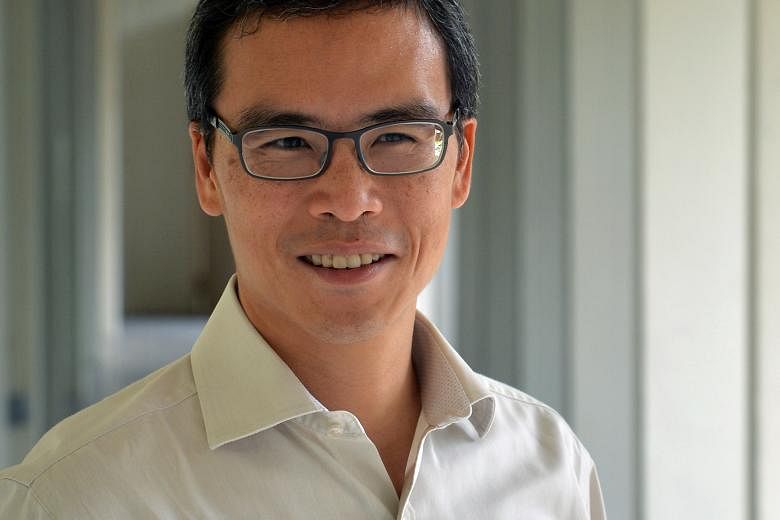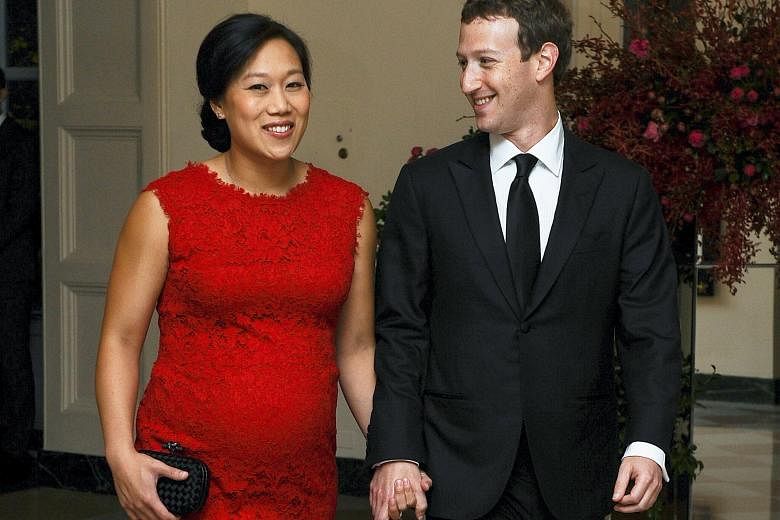Asia's wealthy have been quietly stepping up their commitment to philanthropy, pouring significant fortunes into causes such as education - and doing so well away from the sort of limelight that their Western counterparts often enjoy.
As Facebook's Mr Mark Zuckerberg and his wife drew the world's attention with their recent announcement to donate 99 per cent of their shares in the company to charity, private banks operating in this region are also seeing a strong level of philanthropic activity among their clients.
NO LACK OF WILL AND MONEY
Many established private banks have dedicated units to advise their wealth management clients on matters related to philanthropy.
Credit Suisse Private Banking Asia Pacific is one of them, having created SymAsia five years ago to help its clients set up charitable foundations.
The donations going through these foundations have been steadily increasing since then, Mr Bernard Fung, the bank's family offices and philanthropy advisory head for Asia Pacific, told The Straits Times.
"In our first year, there were only two to three foundations set up. Today, we have 30. And of the 30, the giving facilitated by SymAsia has grown to about $60 million today."
In 2012, SymAsia helped OUE's chairman, Mr Stephen Riady, form his foundation. Last year, Internet tycoon Jack Ma also granted SymAsia the options for 50 million shares to support designated charity causes.
So far, the donations are mostly cash-based, Mr Fung noted, and share donation is still a relatively novel idea. "But make no mistake. While in Asia you may not have the Zuckerbergs of the world with big charity announcements, the giving has certainly been substantial," he stressed.
Singapore has been very much part of Asia's growing philanthropic community, findings of a UBS survey with Campden Research, which studies trends in family wealth, this year showed.
"In Singapore, almost 50 per cent of family offices are currently engaged in philanthropy with an average endowment of 2 per cent of asset under management, or US$6 million (S$8.5 million) to US$7 million per annum," UBS philanthropy head for South Asia Susan Sy noted.
The Singapore Government has moved to encourage more giving. In conjunction with SG50, donors have been granted a tax deduction of 300 per cent of the amount they give out this year. In short, a $1 donation will deduct $3 from the donor's taxable income.
At JP Morgan Private Bank, head of Philanthropy Centre in Asia Pacific Jean Sung has advised around 110 individuals or families this year, with around 60 per cent of them based in Singapore.
"Of the 110, some 40 per cent have now set up a charitable foundation, and on top of giving, some are allocating, over time and with long-term commitment, 8 to 10 per cent of their net worth for social investments in their foundations.
"About 40 per cent of their donations go to education, and 20 to 25 per cent goes to health and elderly care, while another 20 per cent will support emergency relief," Ms Sung added.
The Bank of Singapore's clients are also focusing mostly on education for philanthropy, wealth planning head for trust and insurance Lee Woon Shiu said, adding that the bank has seen a roughly 25 per cent year-on-year increase in the number of charitable trusts that it helped its clients set up and manage.
Trusts differ from foundations in that their asset management is tasked to professional trustees based on a mandate, whereas foundations are company-like entities usually run by their founders.
Mr Lee said: "We have over a dozen ultra-high-net-worth individuals or businesses - usually with US$25 million of assets under management - that have put down US$5 million to US$10 million to start a trust."
FAMILY PHILANTHROPY
Amid the flurry of activity, families are emerging as the key driving force of Asia's philanthropic landscape, the private banks agreed.
UBS' Ms Sy said: "Family values play a large role in family succession planning and this has an impact on the mandate of the Asian philanthropists' socially conscious activities.
"Family philanthropy is seen as a way to increase the communication between family members and to foster bonding, harmony and meaningful engagement of the young generation in a family's wider enterprise."
The role of family philanthropy in Asia is evident in the Lien Foundation, set up by the late banking tycoon Lien Ying Chow in the 1980s. Today, it is one of the region's most well-known charity organisations, and the patriarch's legacy is handled by his grandson, Mr Laurence Lien, who is Lien Foundation's current chairman.
Mr Lien told The Straits Times: "I believe that Singapore and Singaporeans must play a stronger role as global citizens. We need to give, just as we received significantly while we were a young nation and are still receiving."
But he believes there is still a long way to go before his fellow philanthropists in Asia can become powerful agents of change.
To better rally his peers, Mr Lien co-founded Asia Philanthropy Circle in January this year as a platform of collaboration between regional philanthropists. He is now the full-time chief executive of the organisation.
Mr Lien noted: "I am encouraged that more of Asia's wealthy are giving substantially. More are also publicly announcing their philanthropic commitments. Yet, many wealthy individuals are still holding back, and we end up lacking role models in philanthropy who can inspire even more giving.
"Unlike in the United States, philanthropists are still finding their role in Asian societies. They often lack support from key stakeholders. For instance, many governments do not actively encourage philanthropy, as evidenced from the lack of tax incentives or lack of willingness to partner."
In the US, an individual may be entitled to charitable deductions of up to half of his adjusted gross income, provided that the money is donated to government-approved tax-exempt organisations.
Credit Suisse's Mr Fung said the lack of such "tax shield" mechanisms is one reason why the amount of donations in Asia still trails those in the West.
"In the US, there are strong fiscal incentives for people to donate their wealth. But in Asia, the tax rates are already relatively low, and whatever fiscal measures that exist may not have too much of a difference."
THE WAY FORWARD
Regardless, the focus should not be fixated on the amount of donations. Increasingly, Asia's wealthy must also grow their philanthropic projects into sustainable programmes.
JP Morgan's Ms Sung said: "I see no lack of goodwill on the ground, and funding is not really an issue. The issue is finding the right programme that will make a difference and having the right organisations that are run well, with capacity, good governance and effective leadership."
She added: "The framework for social industry in Asia is still loosely defined. Often, we don't have the jurisdictions that define the expertise or licensing of, for instance, the management of non-profit organisations.
"A lot of philanthropy still works mostly on the auspices of goodwill. The social sectors need to be more institutionalised and more professional, and that means Asia's wealthy philanthropists will have to be willing to pay to build the administration and logistics."
To Mr Lien, the way forward for Asia's wealthy philanthropists is to join forces. He believes he is seeing that unfold at his Asia Philanthropy Circle.
He said: "We have a committed group of around 20 members from China, Indonesia, Malaysia, the Philippines and Singapore who are working together on numerous joint projects. These include working on a principal leadership development in regional countries, community-building in low-cost public housing projects in Jakarta and studying the development of a purpose-built assisted living facility in Singapore.
"I am confident that through our projects, we can demonstrate that working together can grow social impact in ways that philanthropists working singly cannot."



